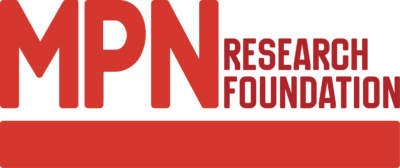Reduced Intensity Haploidentical Transplantation for the Treatment of Primary or Secondary Myelofibrosis
Study Purpose
This phase II trial studies the outcomes of using a JAK inhibitor prior to reduced intensity haploidentical (Haplo) transplantation for the treatment of primary or secondary myelofibrosis (MF). Haplo transplant has been shown to be safe and effective in patients with leukemia and lymphoma who don't have an available sibling donor. The primary risk of using Haplo HCT in patients with MF is graft failure as the graft failure rate has been historically higher with Haplo HCT than with other donor sources and higher with MF patients due to bone marrow fibrosis than in patients with other hematologic malignancies. JAK inhibitors when used in patients with MF may decrease the size of the spleen and decrease inflammation in the bone marrow. Therefore using a JAK inhibitor prior to Haplo transplant has the potential to decrease graft failure in patients with MF. Haplo transplants for patients with MF have been done successfully at multiple institutions in patients not on a study and are currently being covered by Medicare.
Recruitment Criteria
|
Accepts Healthy Volunteers
Healthy volunteers are participants who do not have a disease or condition, or related conditions or symptoms |
No |
|
Study Type
An interventional clinical study is where participants are assigned to receive one or more interventions (or no intervention) so that researchers can evaluate the effects of the interventions on biomedical or health-related outcomes. An observational clinical study is where participants identified as belonging to study groups are assessed for biomedical or health outcomes. Searching Both is inclusive of interventional and observational studies. |
Interventional |
| Eligible Ages | 18 Years and Over |
| Gender | All |
Trial Details
|
Trial ID:
This trial id was obtained from ClinicalTrials.gov, a service of the U.S. National Institutes of Health, providing information on publicly and privately supported clinical studies of human participants with locations in all 50 States and in 196 countries. |
NCT04370301 |
|
Phase
Phase 1: Studies that emphasize safety and how the drug is metabolized and excreted in humans. Phase 2: Studies that gather preliminary data on effectiveness (whether the drug works in people who have a certain disease or condition) and additional safety data. Phase 3: Studies that gather more information about safety and effectiveness by studying different populations and different dosages and by using the drug in combination with other drugs. Phase 4: Studies occurring after FDA has approved a drug for marketing, efficacy, or optimal use. |
Phase 2 |
|
Lead Sponsor
The sponsor is the organization or person who oversees the clinical study and is responsible for analyzing the study data. |
Fred Hutchinson Cancer Center |
|
Principal Investigator
The person who is responsible for the scientific and technical direction of the entire clinical study. |
Rachel B. Salit |
| Principal Investigator Affiliation | Fred Hutch/University of Washington Cancer Consortium |
|
Agency Class
Category of organization(s) involved as sponsor (and collaborator) supporting the trial. |
Other |
| Overall Status | Recruiting |
| Countries | United States |
|
Conditions
The disease, disorder, syndrome, illness, or injury that is being studied. |
Primary Myelofibrosis, Secondary Myelofibrosis |
Contact a Trial Team
If you are interested in learning more about this trial, find the trial site nearest to your location and contact the site coordinator via email or phone. We also strongly recommend that you consult with your healthcare provider about the trials that may interest you and refer to our terms of service below.

 Translate
Translate